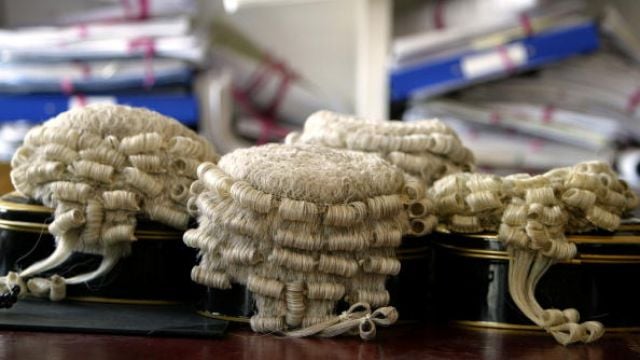A Bill being scrutinised by the Supreme Court is designed to ensure the system for appointing judges works in “foul weather as well as fair”, the Attorney General has said.
Rossa Fanning said recent controversies across the water serve as reminders of the “vital importance” of judicial independence, which is the object and effect of the Judicial Appointments Commission Bill.
By establishing a “robust and thorough” screening process for applicants, the new system aims to reduce political influence to ensure the best candidates are appointed to the bench, he said.
Ordinarily, governments receive criticism for usurping a power they are not entitled to, but in this instance “precisely the converse” is occurring, with the Government castigated for relinquishing a power, he said.
“Here, there is no usurption of power at all. The Government themselves see the problem in politicians having too much power to appoint judges.”
The 2022 Bill, being considered by the seven-judge court on referral from the President, has been approved by both houses of the Oireachtas, so it benefits from a presumption of constitutionality, he said.
Mr Fanning has begun making arguments in favour of the Bill’s constitutionality on behalf of the Government.
President Michael D Higgins, in his first ever referral, has identified 12 provisions for “special attention” by the court, which has been given 60 days to rule on its constitutionality.
If a section is found to be repugnant to the Constitution, the President must not sign it and the entire document will fall. The Supreme Court’s decision is final and cannot be revisited.
Under particular scrutiny is section 51, which requires the government to “only” nominate an individual for appointment as a judge from three names recommended by the new appointments commission, comprising four judges and four lay representatives with the Attorney General as a non-voting member.
On Wednesday, lawyers selected to argue against the Bill submitted it represents an unconstitutional attempt by the Oireachtas to remove power from the government.
The Constitution provides that judges are appointed by the president, whose powers are exercisable “only on the advice of the government”, save for limited circumstances, but here the government’s role is reduced to a “rubber stamp” exercise, submitted Eoin McCullough SC.
On Thursday Mr Fanning rebuffed this suggestion, countering that the Bill “strikes the right balance”, having been drafted in such a way that the executive retains a “meaningful degree of choice” in appointing judges. The Bill reduces choice but “does not eliminate” it.
The Attorney General expressed bafflement at the other side’s complaint surrounding the Bill’s stipulation that judges must be selected based on “merit”. The concept of merit, he said, is inherent and familiar to any recruitment process.
Mr McCullough, Catherine Donnelly SC, Aoife Carroll BL and Francis Kieran BL, instructed by solicitor Michelle Ní Longáin, were selected to argue against the Bill.
Mr Fanning, with Michael M Collins SC, Emma Synnot BL and David Fennelly BL, instructed by the Chief State Solicitor, contend the Bill is constitutional.
The hearing continues.







